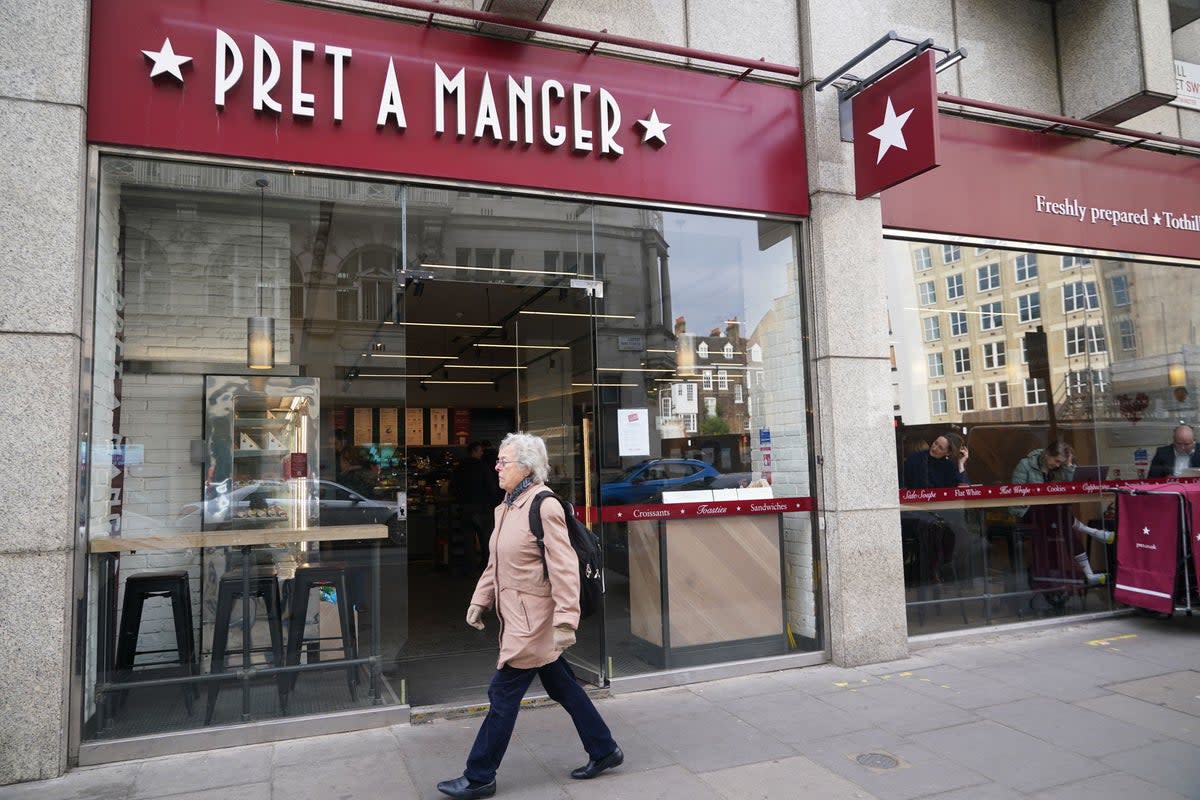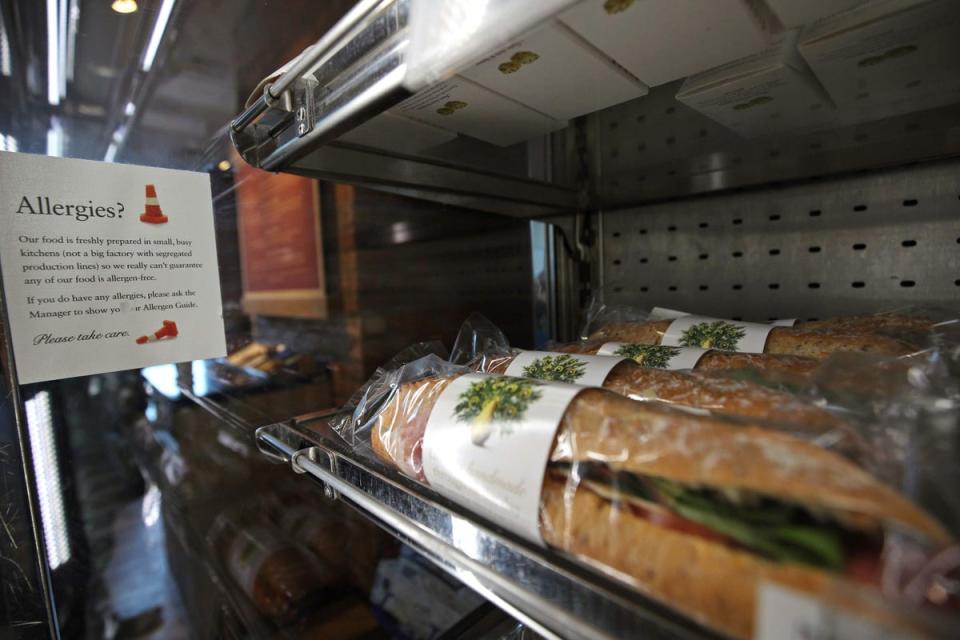It’s about time Pret dropped its prices: they’re becoming a national scandal

I was at the station a few months ago, about to catch a train home following some after-work drinks, when I did something I’ve never done before. I laughed in the man from Pret a Manger’s face.
I’d grabbed a bottle of water and a bag of crisps for the journey home and taken them to the till. And, when he told me the price, I honestly thought he was joking.
“What... What did you say?”
He looked down at the till again.
“That’s £4.95.”
We simply stared at each other for a moment. I felt like I’d been shunted sideways into a parallel universe – one in which everything was exactly the same, barring the fact that a takeaway cafe chain could charge a fiver for water and crisps, and everyone would act as if this were the most natural thing in the world. The lines between reality and fantasy blurred for a moment; how could anything make sense in this new realm of existence?
“How much is the water?” I croaked.
He looked down again: “£2.95.”
“For water?” He shrugged. I half expected him to say “London”, the way Phoebe Waller-Bridge’s character does in Fleabag after demanding £25 for a tomato sandwich in her cafe. At this point I realised I was on the cusp of becoming an unhinged madwoman who spends her days wandering the St Pancras concourse and chuntering about “£2.95...”, “water...”, “bloody criminals...”, and so I decided to retreat.

But it turns out I’m not the only one who’s been genuinely baffled by escalating Pret prices. The brand has been accused of profiteering following hikes across its 450 UK stores, with the company forced to defend its costing decisions. The whole sorry business peaked last year when the lunchtime juggernaut went viral for whacking a heart-stopping £7.15 “dine in” price tag on its cheese baguette. “Sorry but £7.15 for a cheese sandwich. What the f*** is happening here,” tweeted editor Sophie Gallagher at the time. “I am not in an airport or major travel hub. This has fully tipped me over the edge this afternoon.”
“It’s a really tough market,” Pret’s shops and franchise director Guy Meakin told The Grocer. “Energy costs have gone up through the roof, and are now starting to plateau and come down, which is encouraging – but still significantly higher than before.
“But prices are going up, so unfortunately, we are having to pass our prices through to our customers from time to time.”
I’d argue it’s “every time” rather than “from time to time”. Since I first started working in London 14 years ago, Pret has gone from being somewhere you could grab a decent but affordable-ish sandwich when short on time to a place where you’ll as likely as not wind up spending a tenner – only to mindlessly shovel it down at your desk while barely noticing what you’re eating. A friend once said to me, with a tone of sad resignation: “I may as well directly transfer half my salary to Pret at this point.”
Pret has gone from being somewhere you could grab a decent but affordable-ish sandwich when short on time to a place where you’ll as likely as not wind up spending a tenner
On the one hand, it’s understandable that the business needed to up prices to return to profitability after suffering a £255m loss during the pandemic. Pret has been hit particularly hard by the transition to hybrid working, with fewer people going into the office full-time meaning fewer people to buy its bougie brand of “desk lunch” in the first place. Chief executive Pano Christou has also previously highlighted inflationary costs, which have caused labour, ingredient and energy costs to spiral. On the other hand, I don’t think there’s any way to convince me that charging £6.20 for a ham and cheese baguette is justifiable. I simply refuse to accept it.
Finally, it seems that even Pret has realised things have to change. The company recently announced price reductions on six of its most popular items. The tuna baguette has dropped from £4.25 to £3.99; the Posh Cheddar baguette has fallen from £4.99 to £3.99; egg mayonnaise sandwiches, once £3.40, are £2.00; cheese toasties are down to £4.99 from £5.65; tuna sandwiches have been reduced from £3.55 to £2.99; and jambon beurre rolls are £3.50 having previously been £3.75.
“We’ve been looking at opportunities to bring down our prices where possible,” Clare Clough, UK and Ireland managing director at Pret, said of the decision to lower the cost of some items. “Earlier this year, we reduced the prices on six of our freshly made bestselling sandwiches and baguettes by over 10 per cent on average, including the much-loved tuna mayo baguette and jambon beurre.”
Club Pret subscribers also receive a further 20 per cent off these products, plus the rest of the menu – although the price of a subscription, which includes five hot drinks a day, leapt by 20 per cent from £25 to £30 a month in April 2023.
But at least these latest price reductions have opened a conversation about how much the lunch-at-desk brigade should be charging us amid a cost of living crisis and renewed recession. I can only hope Itsu, Wasabi and the rest take heed and follow suit; I’ve no wish to burst out laughing every time I try to buy a bottle of water.


